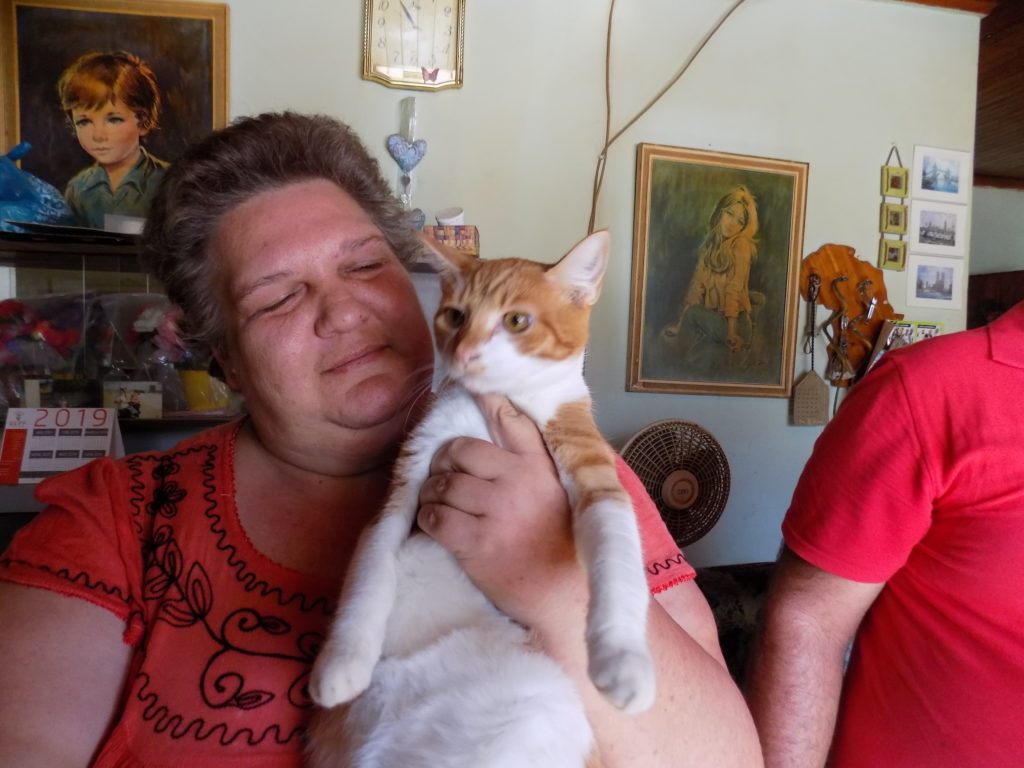By Sovash Chetty
Earlier this April the Feral Cat Project (FCP) was in the red, but thanks to generous donations by residents they were able to continue their work. The Feral Cat Project of Makhanda (Grahamstown) has returned to its duty in full force, however, they are not out of the woods yet.
The FCP has been working tirelessly to keep the feral cat population under control in Makhanda since 2009 and was originally founded by Natalia Kavalenia and Lorna Grant. Lynne Grant (no relation) jokingly claimed herself as the “face” of the FCP since 2010, and explained the two main aspects of the Project. The bread and butter of the FCP is the “Trap-Neuter-Release” (TNR), and secondly, the fostering program that strives to find forever homes for the cats.
The importance of FCP is often lost. “Unfortunately there are always people that will not see the need,” said Grant.
A female cat becomes fertile at the age of four* months, and has the ability to have a litter of five to eight kittens twice a year. An average stray cat lives for slightly over five and a half years. Without the FCP that works out to be potentially 30 kittens from a single female stray cat.
“This is an ongoing process,” added Grant, “of course it would be lovely if there were no feral cats but that’s never going to happen, and there is always someone who thinks they know better.”
Sashay Bates of the Eastern Cape division of Santa Cause for Paws explained, “The feral cat project promotes responsible pet ownership by advocating the sterilisation of your own cats. There are too many unwanted fur babies roaming the streets, which Lynne [Grant] and her friends do a good job of sterilising.”
There will always be a constant need for the FCP and the gravity of that situation does not seem to reach most of the community. However, if it wasn’t for the dedication of certain residents and the generosity of donations by the community the FCP would have stopped operating years ago.

Margriet Wood, known as the “uber-foster mom” by Grant has been one of these citizens since 2011. She runs the most dedicated cat foster home in Makhanda and has housed and found forever homes for over 100 cats.
“I’ve lost count,” said Wood proudly, “my whole life we have had cats[…] we do it out of love for them[…]my house has never been catless.” As she talks a kitten named Ruby softly pads over to her and sleeps soundly, comforted by the proximity to this warm maternal figure.
There is often a stigma attached to adopting a pet, however Wood assures that the cat’s history and health are a top priority. “Everyone has their own personality, but it takes time, love and patience,” Wood explained.
This Project is often an “after-hours” job as Grant explained, who works full-time as a curator for Amazwi South African Museum of Literature (Formerly NELM). Most are volunteers and devote energy and time to the Project out of their own sense of responsibility. “If we are not helping them, no-one else is, and I know how out of hand the situation can get,” explained Tarryn Gillitt, a trapper with the FCP who has spent several years volunteering with various animal conservation projects. “To have a dedicated project in this town is a very special thing, it’s not every town that has one.”
This allows the Project to nip the ‘problem’ in the bud before there is a town wide catastrophe. Feral cats also carry diseases that can easily be transferred to other pets if not vaccinated, a service also done by the FCP as well as sterilisation.
The FCP relies on citizens. “All money that we receive goes straight into the vet account,” assured Grant. There is no “middle-man” handling the money before the sterilisation is done. This should give those uneasy about donating some peace of mind. “We try and keep the project small, no offer of help is too small…even a share on Facebook is better than nothing” explained Grant.
“I’m just an ordinary person that got involved, I have never had cats before the project,” said Grant. “They don’t have a voice so you must speak for them,” explained Wood, Ruby still fast asleep beside her.
If you wish to donate simply send the money to:
Grahamstown Veterinary Clinic
Standard Bank: 282625054
Branch Code: 050917
Reference “W/CAT” and your name, and email proof of payment to l.grant@nelm.org.za



